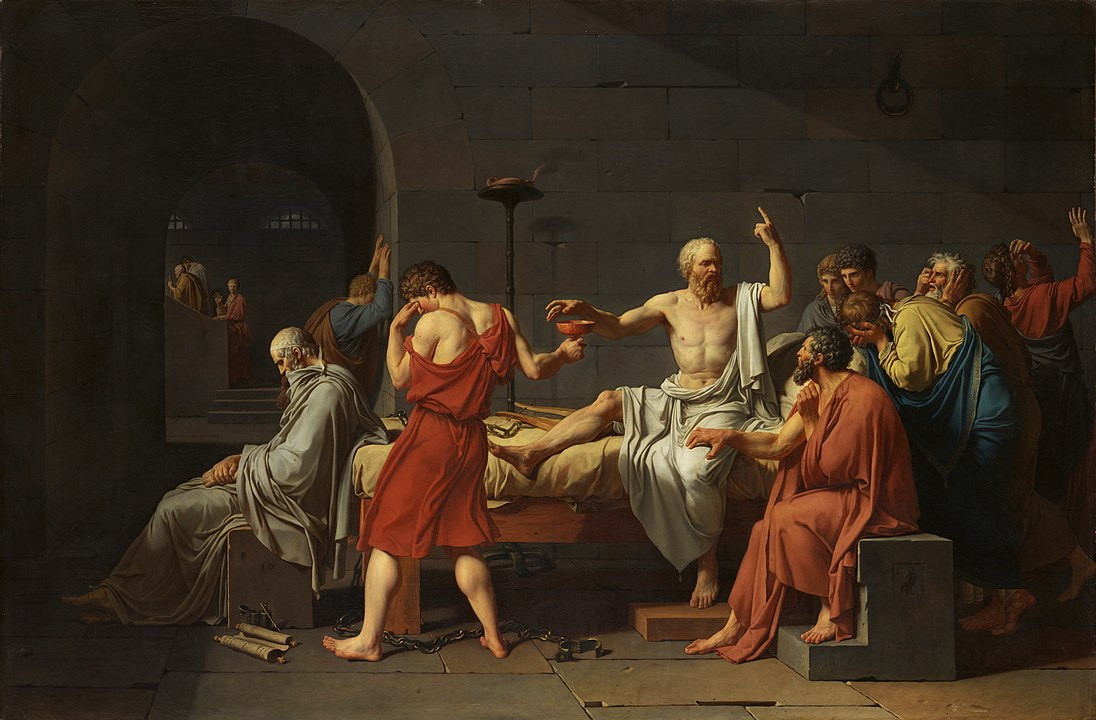About asking questions

In the history of philosophy, questioning has always played a special role, distinguishing philosophy from wisdom. The sage as a conceptual character, presumably own the fullness of knowledge, opposes the philosopher, who own knowledge of his ignorance as his Other. Similar figures are found not only in ancient Greek, ancient Indian and ancient Chinese sources, but also in the history of modern philosophy. The thought of Descartes, who asked the question of the possibility of adequate knowledge and of its correspondence to the methodological principles of the totality of possible knowledge, marks the transition from medieval to modern European philosophy. Many of Kant’s ideas were a response not only to abstract requests, but also to very specific questions posed on a competitive basis to the smartest people of the era, in particular, “What is Enlightenment?” With the exhaustion of the Kantian and, in general, the Enlightenment agenda, the thought of Martin Heidegger is associated, who defines philosophy as an inquiry about the truth of the being of beings.
Modern philosophical thought, like any that preceded it, is also determined by the problems that it faces. Taking into account the existence of many philosophical trends, it should be noted that the most promising of them are those that allow us to think about the relationship between the problems of scientific knowledge and the political transformation of the world — in other words, the spectrum of Marxist thought and related trends that can and should be included in its composition. Philosophical currents that allow the existence of supernatural forces, the other world, standing on contemplative and other ideological and metaphysical positions, thus, basically remain outside the scope of consideration and are taken into account mainly as a subject of criticism.
There are many questions appears in the process of philosophical seminar. Let’s count basic and obvious of them also subjects of discussion.
1. Basic subjects of philosophical discussion
According Deleuzian meta-philosophy, there are three basic entities in the process of philosophical assemblage:
1. Concepts — philosophical words, bringers of singular groups of universal senses which constitute, transform and destroy systems of meaning. For example: arche, idea, cogito, being, geist, reflection, relation, subject-object distinction, difference, quality-quantity-measure, communication, assemblage, etc.
2. Plane of consistency — space of production, distribution and coordination of social and intellectual contradictions. For example: intersection of problems of knowability and changeability of the world in materialist philosophy of Marx and his followers that make marxism the only consistent philosophy.
3. Conceptual personaes — characters or positions, that appears at intersections of the social and intellectual problematics, therefore assemblages of dissolution of contradictions.
2. Observative questions
Basic questions as it is in the structure of language: what, how, where, when, why, what for — about subject of discussion, its properties, place and time, cause and meaning of the subject. But it is not all possible questions that result from list of entities about asking goes. Let’s extend this list:
1. Form — external surface that determine inner space of the object
2. Content — internal space of the object and its conclusion
3. Property — objective definition of entity, mode of its negation
4. Relation — mode of bindness of the object with other objects, spaces and other entities.
5. Structure — summ of relations
6. Place — area in the space, where object exist
7. Time — area in the timeline, when object exist
8. Dynamics — mode of change of existential characteristic of the object
9. Cause — summ of relations which produce object
10. Meaning — mode of usage of the object in some practice
This and related subjects of questioning can be classified as observative categories, in model of regimes of philosophical thought according Deleuzo-Guattarian metaphilosophy.
3. Critical questions
Critics as an other regime in Deleuzo-Guattarian metaphilosophy are include this questions:
1. What is right in text? — in classical Marxist dialectic this moment defines as extraction of rational grain.
2. What is wrong in text? — usually any text has right and wrong parts. There are no such geniuses who would not be mistaken. And there are no such fools who can not be say something right, even by chance. List of criteries of metaphisics as wrong philosophy can accelerate finding of mistakes in any text.
3. Why is this thesis is right or wrong? — any right ideas or mistakes has some cause in author’s discourse or in social or physiological conditions of theoretical work.
4. What is possible condition of this thesis that make it right or wrong? — correction of mistakes is very important moment in critical questioning. Without correction critics become empty criticism which can be appear to us some wrong ideas but can not be show way to the true understanding and right mode of action.
4. Interpretative questions
The basic method of interpretation as third regime of philosophy is an extension of the context. Obviously, dark and hazy meaning of some complete text can be clarified only in comparison to other texts. Therefore to promote our understanding we should multiply quantity of comparing texts and authors in interdisciplinary thought-moving.
Also we can distinct concepts of explanation and interpretation. Explanation is inquiry of meaning of different parts of text in comparison of its. Obvious, one text can be explain by many difference ways. Interpretation is inquiry of meaning of different ways of explanation of the text.
Questioning in regime of interpretation has a form of extending chain of questions:
1. What does it mean?
2. What does this answer mean?
3. What is conditions in whose this answer has some or another meaning?
4. What is another viewpoints to this problem?
5. What is relation between this viewpoints?
6. What is withdraw from this settings of viewpoints?
Conclusions
1. Asking of questions is important method in philosophical discourse.
2. Philosophical questions are classified by regimes of discourse.
3. Basic regimes of philosophical questioning is observation, critics and interpretation.
4. This list of possible questions are suggests application by other regimes of philosophical discourse: reflection, systematization, deconstruction, communication, translation and investment.
